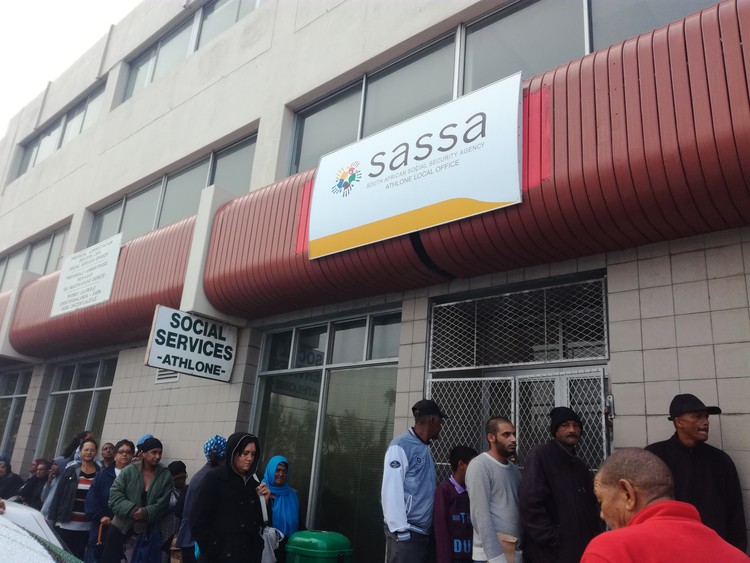

Draft bills will introduce a new social grant for families. Archive photo: Barbara Maregele
14 December 2018
The Department of Social Development (DSD) is fast approaching a February 2019 deadline to amend the foster care system so that families no longer have to go to court every two years to get their foster care grants extended.
According to Section 159 of the Children’s Act, foster care grants expire after two years, unless extended by order of a children’s court.
Lapsed court orders cost more than 120,000 children their grants over the course of 2010, and a further 100,000 children were seriously at risk of soon losing theirs in January 2011.
The Centre for Child Law filed an urgent application in 2011 at the Pretoria High Court against the Minister of Social Development. The court extended existing foster care grants for three years, so as to give the DSD time to create a “comprehensive legal solution” to solve the crisis in the foster care system which benefits more than 400,000 children.
The three years passed and the Centre and the DSD found themselves in court again in 2014. The Minister of Social Development applied to extend the existing order, as no comprehensive legal solution had been created and there was the risk of another “national crisis” with hundreds of thousands of children losing their grants. The DSD was granted this second order, keeping the current grants in place. But the court set a deadline for the amendment of the Social Assistance Act and the Children’s Act. By December of 2017, the comprehensive solution needed to be in place.
In October 2017, with the deadline approaching, no solution was yet in place. Again, the Centre for Child Law went to court, arguing that the minister’s failure to “produce a comprehensive legal solution” was “unconstitutional, unlawful, and invalid”. The two parties settled, and the court directed the DSD to “prepare and introduce before Parliament the necessary amendments to the Children’s Act 38 of 2005 and/or the Social Assistance Act 13 of 2014”.
The February 2019 deadline is now approaching. One piece of legislation, an amendment to the Social Assistance Act, has been before Parliament since April this year. The second piece, an amendment to the Children’s Act, is currently out for comment but hasn’t yet been tabled. Both must be tabled in Parliament by February 2019 and passed by December 2019.
The two amendments would significantly change the administration of the system. If both are passed, in future all children who are orphaned and who live with relatives will not automatically be considered to need care and protection. They will be moved out of the foster care system. Instead of a foster care grant, families will be able to apply for a new grant, the Child Support Top Up Grant, without needing to go to court or submit to a social worker investigation. The grant, of R620 a month, will be processed directly by the South African Social Security Agency (SASSA) in as little as three days of application and definitely within three months, relieving families of lengthy delays of up to one year to obtain a social grant.
However, Paula Proudlock of the UCT Children’s Institute doubts whether either of the amendments will be passed by December 2019 due to the upcoming elections, a change in Parliament, and the intricacy of each amendment. The new Parliament is likely to start working on the bills only in August 2019, leaving only five months to pass both bills through both houses of Parliament.
Ann Skelton of the Centre for Child Law expresses similar doubts. “I think it’s possible they won’t make it,” she told GroundUp.
Skelton says Parliament and the DSD have made progress as a result of the court orders, but there is a risk that one of the amendments (the Children’s Amendment Bill) is too large to pass in time. The Centre “repeatedly” advised the DSD to “fast-track” small parts, but the department opted for a full amendment to the “massive” bill, and this may hold up the bill, she says.
If the bills do not get passed in time, there is uncertainty about what will happen next.
Both the Centre for Child Law and researchers at the UCT Children’s Institute are critical of the present foster care system. Proudlock says the system was designed to deal with a few cases of abuse and neglect, and attempting to use it to provide poverty relief to hundreds of thousands of children has broken the system and put many vulnerable children at great risk. In its 2017 affidavit, the Centre said the foster care system had become “overburdened”, inhibiting its ability “to cater for the abused and neglected children”. The high numbers of children in the system and the shortage of social workers had led to a “systemic collapse”.
GroundUp tried several times to get comment from the DSD about the status of the bills and to find out if any plan of action was in place should the deadline not be met, but had not received any response at the time of publishing.